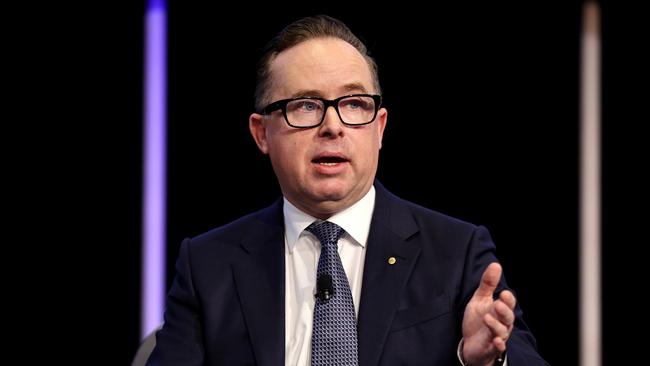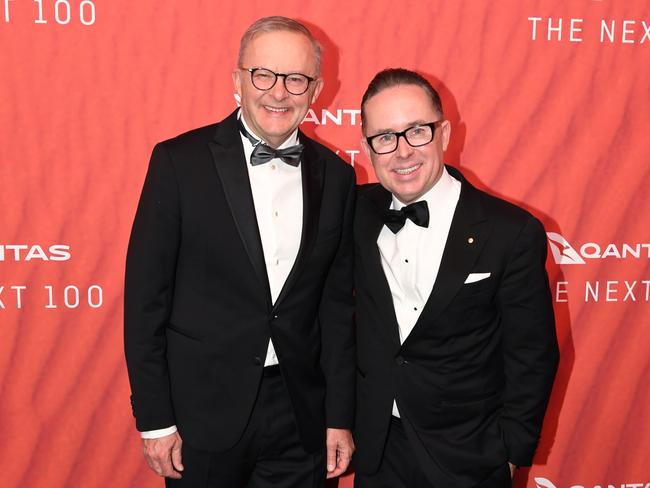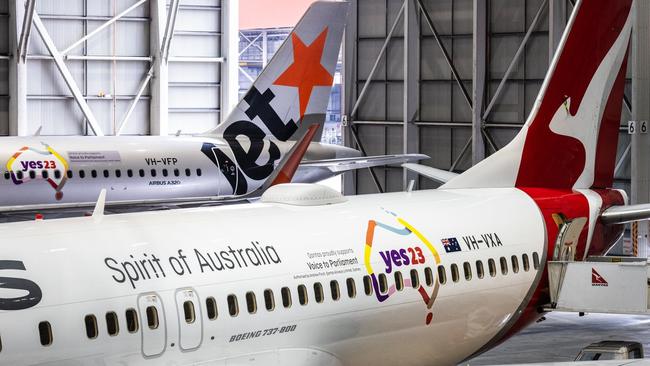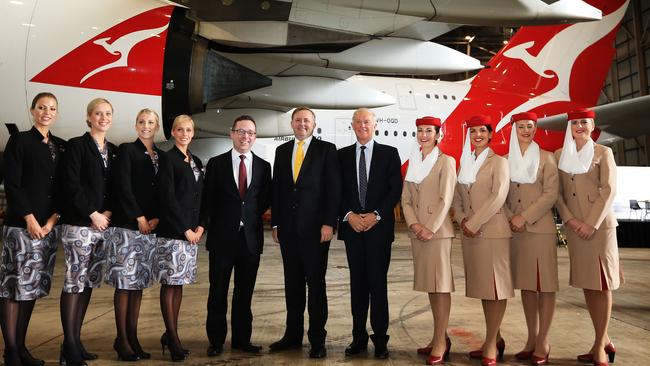Alan Joyce appears on Our Future Skies podcast ahead of Qantas expose
The ex-airline CEO has stepped out to combat the bad publicity expected ahead of the launch of a tell-all book on Qantas, likely to reveal new information about his controversial reign.

Former Qantas chief executive Alan Joyce has stepped out into the public arena for the first time since his hastier than planned exit from the airline, talking up his decision to push the airline into ultra long-haul flying.
In a softball interview on the “Our Future Skies” podcast with John Strickland, the former Qantas boss says “Project Sunrise” will give the airline an uncontestable advantage over rivals because it will fly 20-plus direct flights to city pairs such as Sydney-London.
“Qantas has so many routes away from Australia that are in the 19-hour category, it can have 12 aircraft, maybe one day 24 aircraft,” Mr Joyce said. “It’s a very unique proposition that could be very profitable.”
The podcast is the first time Mr Joyce has raised his head above the parapet since departing Qantas last year — months earlier than planned — as anger mounted about a number of missteps under his 15-year reign.

The Dublin-born chief executive is likely to face a barrage of negative headlines in coming days as prominent columnist Joe Aston releases his much-awaited book on Qantas.
In the book, it is expected that more detail will be revealed about the extremely close relationship between Mr Joyce and Anthony Albanese, which stemmed from the Prime Minister’s days as the transport minister in Kevin Rudd and Julia Gillard’s governments.
During that time, Mr Albanese was known to enjoy the Qantas largesse, including free trips such as the 2013 inaugural Qantas-Emirates Dubai flight, where he was among guests serenaded by Gloria Gaynor at luxury island resort at Atlantis, Dubai.
Mr Joyce came under fire from the public for putting Qantas money behind the Albanese government’s Indigenous voice referendum.

Qantas had Yes23 logos painted on some planes and gave free flights to key campaigners.
The Prime Minister’s Office did not respond to questions about whether Mr Albanese had declared all upgrades and free-of-charge flights on Qantas.
A senate inquiry was held to try determine whether the Albanese’s government’s decision to deny major rival Qatar Airways permission to fly more planes into Australia was tied up in a deal for Qantas to participate in the Yes campaign.
While it’s not surprising that Qantas under Mr Joyce would have been lobbying hard to prevent increased competition from Qatar — which is often voted the world’s best airline — it surprised many observers that the lobbying may have worked.
But for Mr Joyce it came after the Qantas was found to have illegally fired 1700 baggage handlers during the Covid-19 pandemic, and after the pandemic under his reign the airline sold tickets on so-called ghost flights that had already been cancelled.

The airline would not refund tickets for flights grounded during the pandemic, and made travel credits near impossible to cash in.
These issues tarnished a legacy that had previously seemed sound, built on feats including steering Qantas through border closures and lockdowns during the pandemic, undoubtedly the toughest challenge to face aviation since the September 11, 2001 attacks in the US.
Ahead of the Qantas expose book, Mr Joyce appears to be trying to get on the front foot and has even hired his own media adviser at his own expense.
The decision to conduct a soft interview on the aviation industry is likely to be one way of trying to get front foot with repairing his reputation.
The choice of John Strickland as his interviewer may have been a beneficial one for Mr Joyce.
“In my personal view, he has left the airline with some important legacies, which I believe will strengthen its performance for the future,” commented Mr Strickland at the start of his podcast.






To join the conversation, please log in. Don't have an account? Register
Join the conversation, you are commenting as Logout